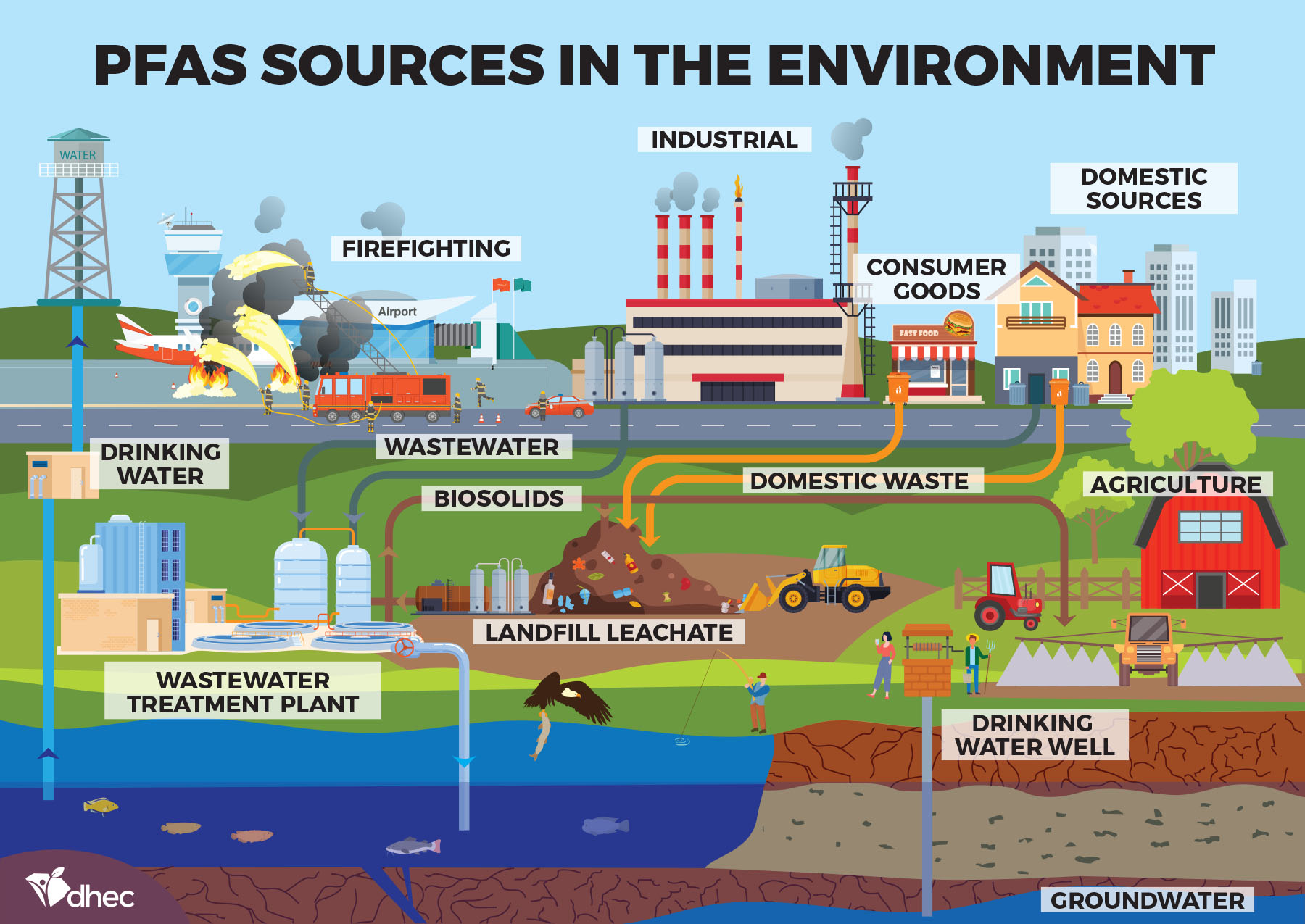Reports do not cover private wells such as those that serve most of Charlestown
By Colleen Cronin / ecoRI News
staff
As of June 27, about 35% of water systems in the state had not reported results of forever chemical testing to the Rhode Island Department of Health ahead of the July 1 deadline.
A state law passed last June requires water systems to
test for per- and polyfluoroalkyl substances (PFAS), which are found in
firefighting foams, food packaging, and waterproof clothing and are linked
to several cancers, fertility
issues, and developmental delays in children. It also requires a new
interim drinking water standard of 20 parts per trillion (ppt) of PFAS.
According to RIDOH spokesperson Joseph Wendelken, 64% of
community water systems and 65% of non-transient non-community water systems
have reported their results.
A community water system has at least 15 connections servicing year-round residents, while the other type of non-community system services at least 25 of the same people over six months per year, such as a school or workplace.
“RIDOH is working closely with public water systems to maximize compliance with the law, including covering the cost of PFAS samples taken before July 1, 2023, on a first-come, first-served basis and providing sampling guidance,” Wendelken wrote in an email to ecoRI News.
Public water systems that do not meet the July 1 deadline
will receive violations, and could face other penalties, per the enforcement
components of the June 2022 law.
RIDOH has not yet release a list of systems that have or
have not submitted sample results because “those lists are still in flux,” but
plans to do so after the deadline, Wendelken wrote.
ecoRI News has previously reported that
testing is expensive and sometimes difficult to do accurately.
“What clothes the sampler is wearing, you know, what kind
of a writing pen they’re using, all this stuff can impact your sample results
inadvertently,” Tim Cranston, the water director for North Kingstown, told
ecoRI News last fall, after finding that a water source in his town had higher
than expected PFAS levels, prior to the passage of the new interim drinking
water standard.
Wendelken reported that some samples have come back with
high positive results for PFAS, above the interim standard, but in accordance
with state law, those public water systems will have to take a second
confirmation sample. The first sample and confirmation sample results are
averaged to determine whether it exceeds the standard.
